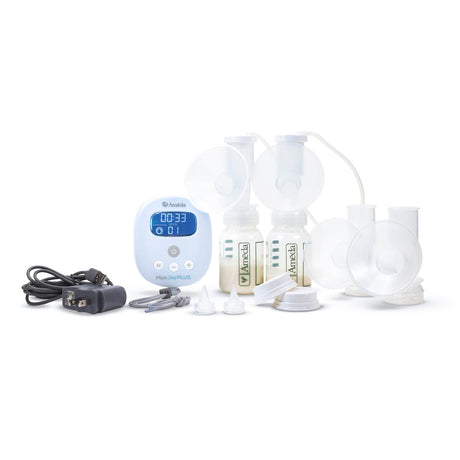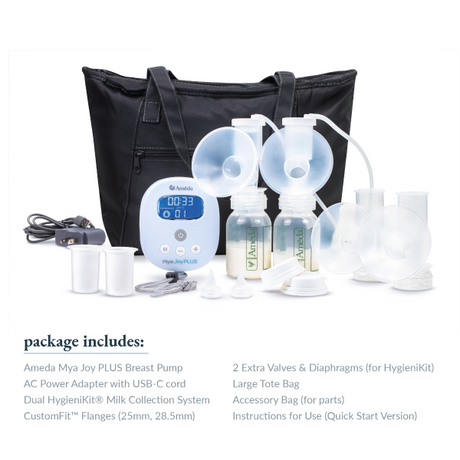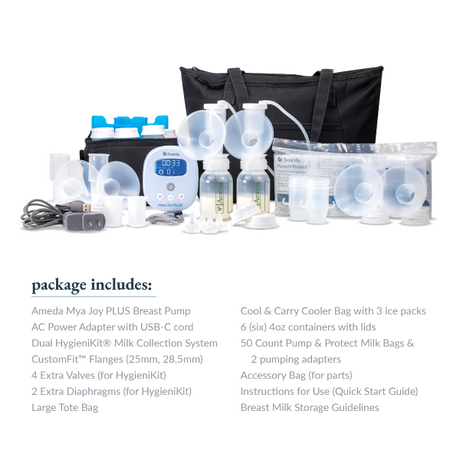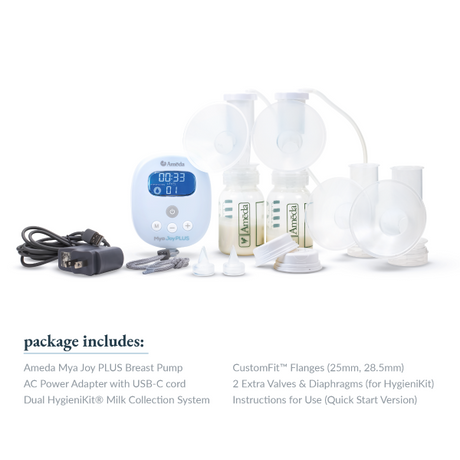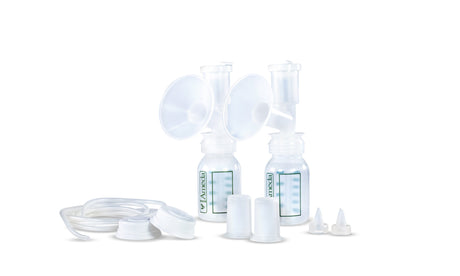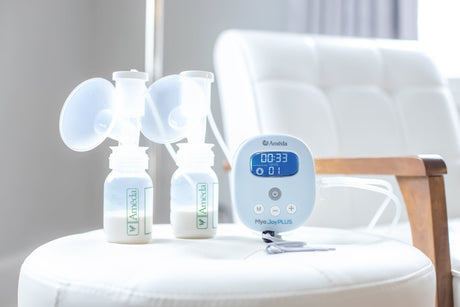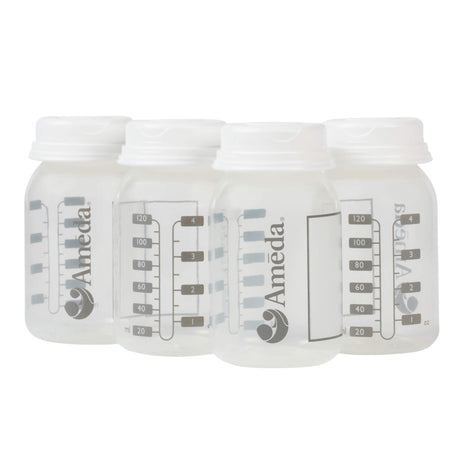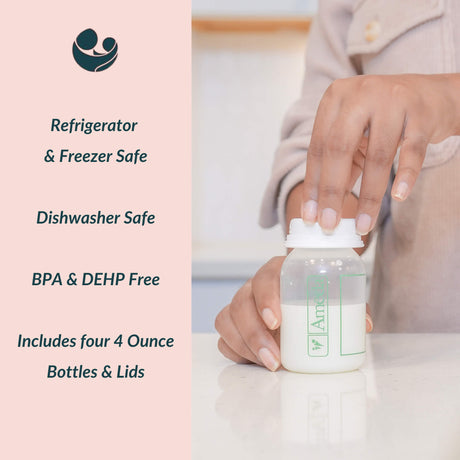Published:
Nutrition tips for breastfeeding moms
When breastfeeding or breast pumping, many mothers are curious whether there are specific foods they should or should not eat. In truth, there are no foods that every breastfeeding mother must have, and there are no foods that all mothers must avoid. For example, in most cases there is no need to steer clear of chocolate, spicy foods, onions, garlic, broccoli, or cabbage. A good rule of thumb to follow is “everything in moderation.” Here are some additional tips to consider when breastfeeding. These are general information tips and do constitute clinical advice.
Tip #1: Eat to hunger
You do not need to eat more than usual to make enough milk, just “eat to hunger.” Extra calories do not seem to be as important as once thought. Your fat stores at your baby’s birth provide much of the fuel needed to make milk. Research has found that your metabolism may be more efficient while breastfeeding than at other times. This may reduce your need for extra calories. More active mothers will need more calories, but they will likely also feel hungrier, too.
Tip #2: There is no ideal diet or foods to make good quality milk or to make more milk
Although eating well is good for you (it boosts your energy and resistance to illness), an ideal diet is not necessary to produce good quality milk. As pediatrician/neonatologist and breastfeeding expert Ruth Lawrence, MD, writes: “All over the world women produce adequate and even abundant milk on very inadequate diets.”* Studies have found that it takes famine conditions for several weeks before a mother’s milk is affected.
*Lawrence, Ruth A. et al. Breastfeeding: A Guide for the Medical Profession 8th edition, Philadelphia 2016: Chapter 9, page 285.
From what we know, food is not related to increased milk production. Milk production is based on how many times each day your milk is drained well from your breasts. The more times you breastfeed or express your milk and the more drained your breasts are, the more milk you will make. For information on herbal and prescribed medicines that increase milk production, talk to your lactation consultant.
Tip #3: A fussy baby is likely not related to something you’ve eaten
Keep in mind that almost all babies have fussy periods, but your baby’s fussiness is probably unrelated to your diet. Besides fussiness, other signs in a baby are dry skin, congestion, bloody stool, rash, and wheezing. If you suspect a food is affecting your baby, try avoiding it. (Cow’s milk takes about two weeks to clear.), then try eating it again. If your baby reacts, you’ll know to avoid that food for a few months. (Most babies will not react after about six to nine months of age.) The most likely culprits are protein foods such as dairy, soy, egg white, peanuts, and fish. Only changing your diet will tell you for sure.
Tip #4: If you choose to diet during breast feeding, approach weight loss gradually
Dieting during breastfeeding may be the best time, as breastfeeding helps burn fat stores. But it’s best to go slowly and lose weight gradually. Any diet should include at least 1800 calories per day.
As with other food products, artificial sweeteners are okay in moderation, one to two servings per day.
Tip #5: If you are vegetarian or vegan, ensure you are getting enough vitamin B12
As a vegetarian, you need to either eat foods that have vitamin B12 (such as eggs or dairy), eat foods with vitamin B12 added, or take supplements. If you are on a vegan or macrobiotic diet or any other diet that does not include animal products, be sure to get enough B12.
Tip #6: Drink to thirst
Research has not yet found a link between the fluids a mother drinks and her milk production. The simple guideline is drink to thirst. To make it easy to get a drink when thirsty, keep a container of water where you usually breastfeed. A sign that you may need to drink more fluids is if your urine is dark yellow instead of a light, straw color.
Tip #7: Caffeine in moderation
As with all parts of your diet, think moderation. One or two cups of coffee (or other caffeinated drinks such as teas or colas) are not likely to cause a reaction. Unless a baby is unusually sensitive, there is no need to avoid caffeine completely.
Tip #8: An occasional glass of beer or wine while breastfeeding has not been found to be harmful, but stronger drinks or more alcohol take longer to leave your milk
You can have an occasional glass of beer or wine while breastfeeding; a little alcohol in the milk now and then has not been found to be harmful. However moderate to heavy drinking is risky for your baby.
Mothers who want to avoid any alcohol in their milk can have their drink right after nursing. Research shows that alcohol passes quickly into a mother’s milk, peaking within 30 to 60 minutes (60 to 90 minutes when taken with food). But it also passes out of milk quickly. For a 120-pound woman, it takes 2 to 3 hours for the alcohol in one glass of beer or wine to leave her milk. And there is no need to pump to make your milk alcohol-free. As blood alcohol levels drop, alcohol leaves the milk. If a breastfeeding mother has a stronger drink or more than one glass of beer or wine, it will take much longer for the alcohol to leave her milk.
This is general information and does not replace the advice of your healthcare provider. If you have a problem you cannot solve quickly, seek help right away. Every baby is different. If in doubt, contact your physician or other healthcare provider.


